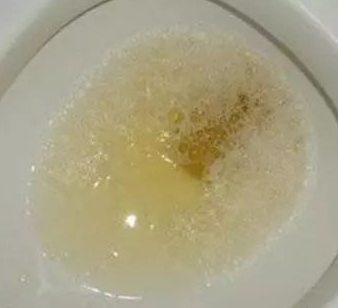
There are certain bodily functions we perform on autopilot, rarely giving the result a second glance. But sometimes, the evidence in the bowl demands our attention. One of the most striking, and often unnerving, sights is urine that is persistently frothy or foamy. Unlike the clear, transient bubbles that appear with a forceful stream, this is a foam that lingers, resembling the head on a glass of beer.
It’s easy to hope it’s just a result of dehydration or the velocity of the stream. But when this froth becomes a frequent occurrence, it’s time to stop hoping and start paying close attention. Frequent frothing when urinating is a classic and significant sign that proteins are leaking that should be retained in your bloodstream, and it often points directly to compromised kidney function.
To understand why, let’s take a quick look at the brilliant design of your kidneys.
The Kidney: Your Body’s Master Filter
Imagine your kidneys as two sophisticated, living filtration plants. Every day, about 150 quarts of blood pass through them to be cleaned. Their job is to remove waste and excess water while keeping the valuable components—like proteins—in the blood.
The key to this process is the glomerulus, a microscopic filter in the kidney with pores so tiny they are designed to block large molecules, especially vital proteins like albumin. Albumin is essential—it keeps fluid from leaking out of your blood vessels and nourishes your tissues.
When the Filter Fails: Proteinuria
Frothy urine is the direct result of these filters becoming damaged and “leaky,” a condition medically known as proteinuria (protein in the urine) or specifically albuminuria.
When the glomeruli are damaged, their pores become enlarged or damaged, allowing albumin to spill into the urine. As this protein-rich urine hits the water in the toilet, the albumin acts exactly like the proteins in an egg white—it creates a stable, persistent foam.
This is not a normal or benign process. The presence of significant protein in the urine means the very foundation of your kidney’s filtration system is compromised.
What Your Frothy Urine is Trying to Tell You
The leakage of protein is rarely the primary problem; it is a symptom of an underlying condition that is attacking the delicate filters of your kidneys. The most common culprits are:
- Diabetes: Uncontrolled high blood sugar is intensely damaging to the small blood vessels in the kidneys. Diabetic kidney disease (nephropathy) is a leading cause of proteinuria and eventual kidney failure.
- High Blood Pressure (Hypertension): Just as it can damage the vessels in your heart and brain, chronic high pressure can strain and damage the fragile vessels in the glomeruli.
- Glomerulonephritis: This is a direct inflammation of the kidney filters themselves, which can be caused by infections, autoimmune diseases (like lupus), or other disorders.
Why You Cannot Ignore This Signal
Allowing protein to leak out over time is a slow-moving catastrophe with two major consequences:
- For Your Kidneys: The ongoing damage scars the filters, leading to a progressive decline in kidney function. This can eventually result in chronic kidney disease and, in the worst cases, kidney failure, requiring dialysis or a transplant.
- For Your Whole Body: Losing essential protein leads to swelling (edema) in your ankles, legs, and around your eyes. It can also cause malnutrition, as your body is literally wasting away its own building blocks.
What to Do When You See the Foam
- Don’t Panic, But Do Investigate. The first step is to see if it persists. Increase your water intake. If the frothing disappears, it was likely due to concentration. If it remains despite good hydration, it’s time to act.
- Schedule a Doctor’s Appointment. This is non-negotiable. Tell your doctor, “I am experiencing persistent, frothy urine and I am concerned about protein leakage.”
- Get a Simple Urine Test. A urinalysis can instantly detect the presence of protein. If protein is found, a follow-up test called a UACR (Urine Albumin-to-Creatinine Ratio) will precisely measure how much is leaking.
- Prepare for a Full Check-Up. Your doctor will also check your blood pressure and order blood tests to check your kidney function (like eGFR) and blood sugar levels.
Frequent frothing when urinating is one of your body’s most visible and urgent bulletins. It is your kidney’s way of showing you that its master filters are failing to hold onto the very substances that keep you healthy. By heeding this foamy warning, you are taking a critical step to identify and treat an underlying condition, potentially saving your kidneys from irreversible damage and protecting your long-term health.